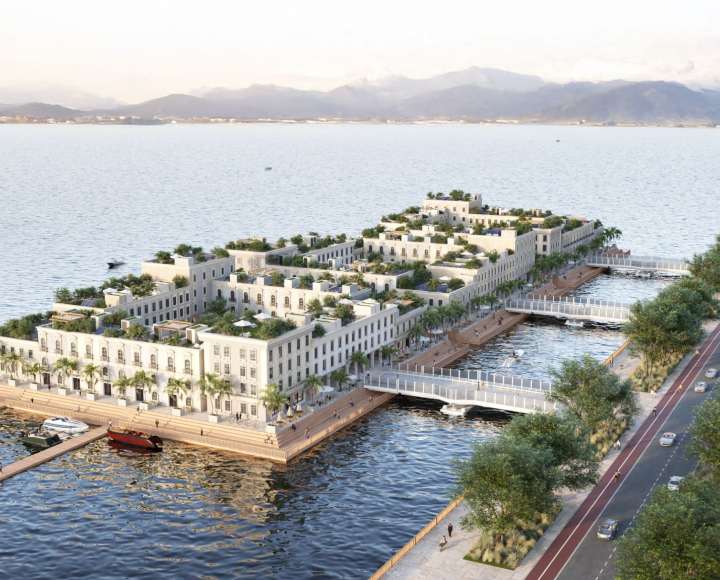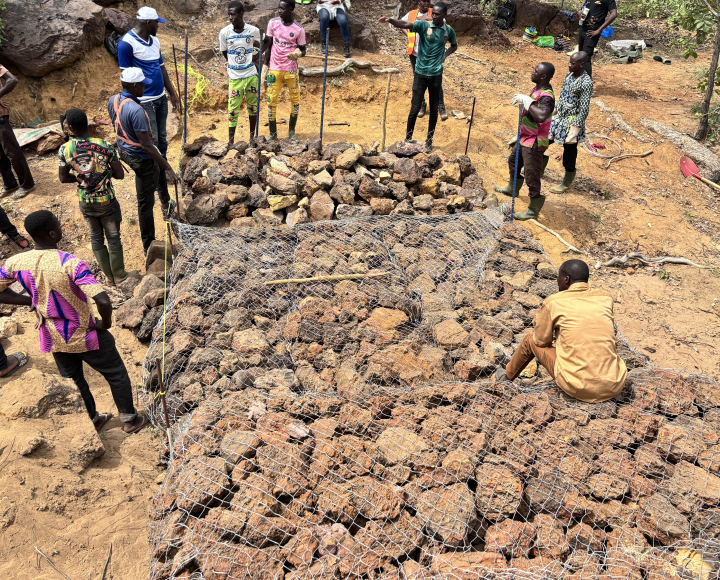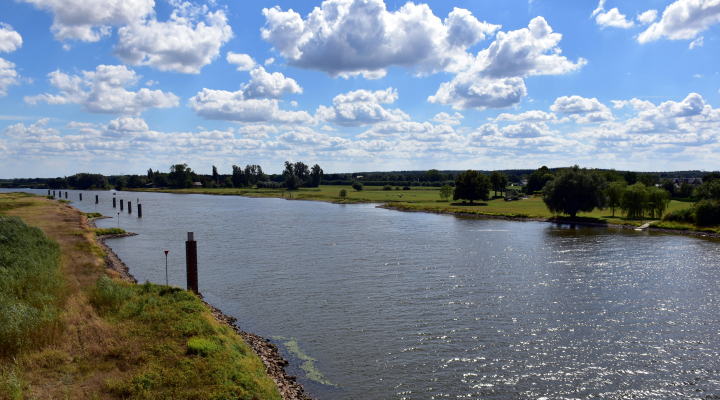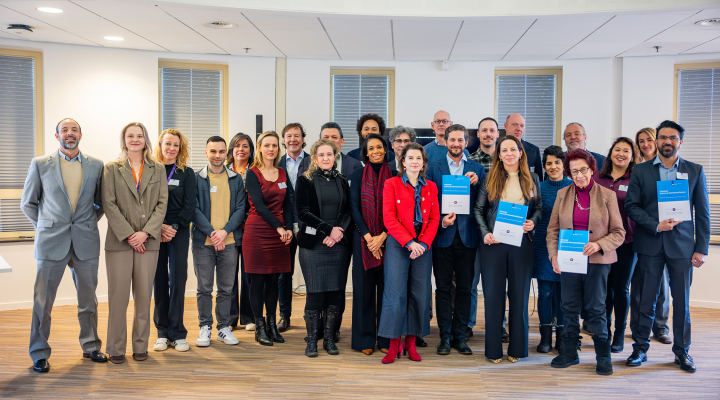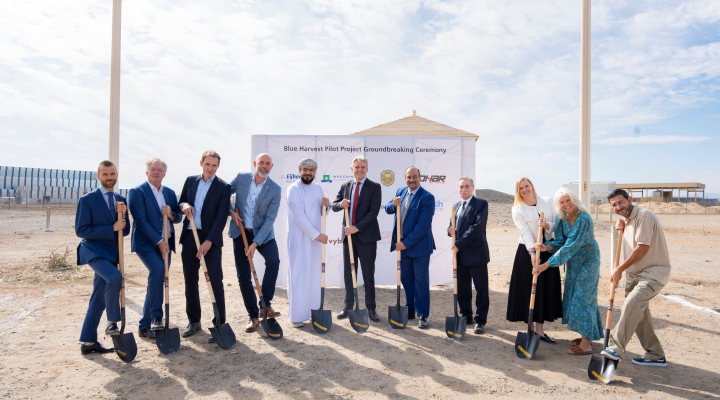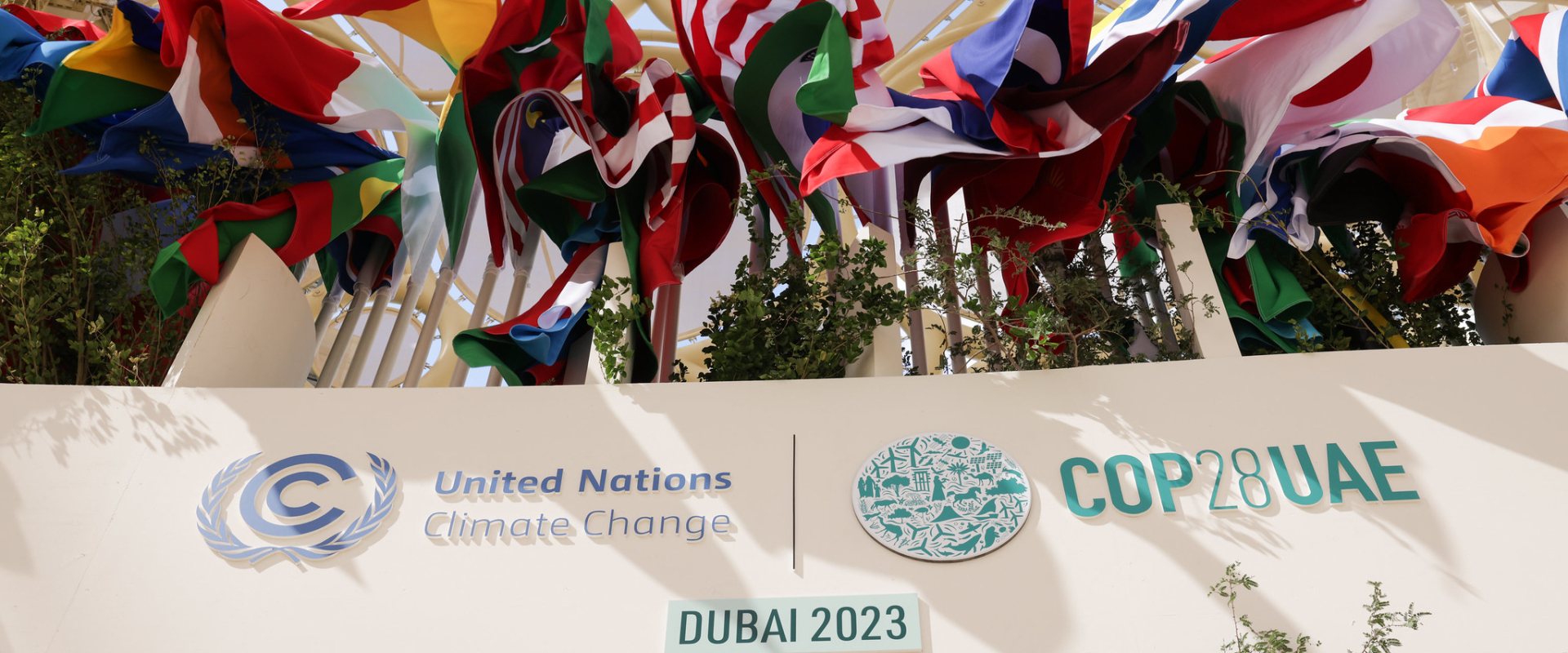
Ten water-related highlights of the Dutch participation at COP28
From 30 November to 12 December, the world looked to Dubai for regular updates on international steps towards limiting global warming to 1.5 degrees – the Paris Agreement’s temperature target. The 28th session of the UN Conference of the Parties on Climate Change (COP28) has ended but the call for climate action continues as the global stocktake notes that the Parties are off track in meeting their Paris Agreement goals.
In partnership with the COP28 Presidency, the Netherlands and Tajikistan served as COP28 Water Champions and led its Water Agenda. As a Water Champion, the Netherlands has continuously advocated for placing water at the heart of climate action to ensure that water receives the attention that it deserves and has contributed to numerous water-related initiatives. Here’s a selection of 10 of the many actionable outcomes in which the Netherlands has played a role.
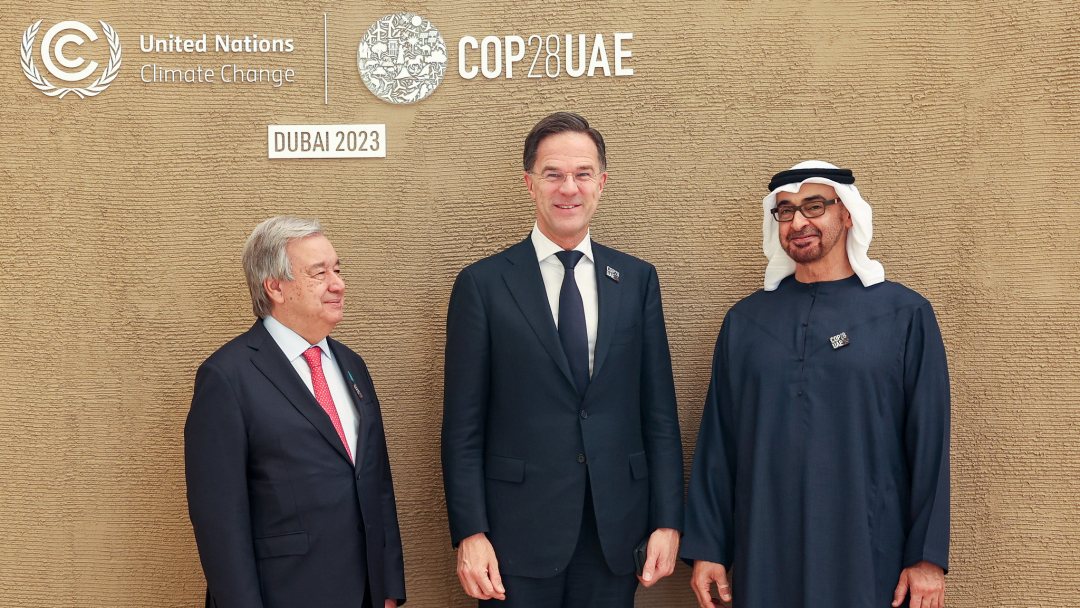

Contribution to Climate Damage Fund
During his Plenary Statement at the COP28 summit on Friday 1 December, outgoing Dutch Prime Minister Mark Rutte announced that the Netherlands will contribute EUR 15 million a new fund to help countries cope with loss and damage caused by climate change. This Climate Damage Fund was approved on the first day of the Conference.
“On climate finance, it’s crucial that all parties support the recommendations made by the Transitional Committee on Loss and Damage. All the warning lights are flashing red after yet another year of climate extremes. So we need to set up a fund and help the most vulnerable countries. The Netherlands will provide 15 million euro to the startup costs of this fund,” said Rutte in his speech.
Other countries such as the United Arab Emirates, the United States and Germany have also announced contributions to the fund.
According to Maroucha Veerman, Policy Officer Climate Diplomacy of the Dutch Ministry of Foreign Affrairs, the fund “will provide the most vulnerable countries with financial support for dealing with disasters caused by climate change and for preparing themselves better so as to limit climate damage. It’s unique for this to happen on the first day, since decisions like this usually don’t come until the end of a conference.”
Veerman and other members from the delegation sent by the Government of the Netherlands to the COP28 have shared their views on and experiences at the Conference in Dubai though a ‘Behind the scenes at COP28’ blog.
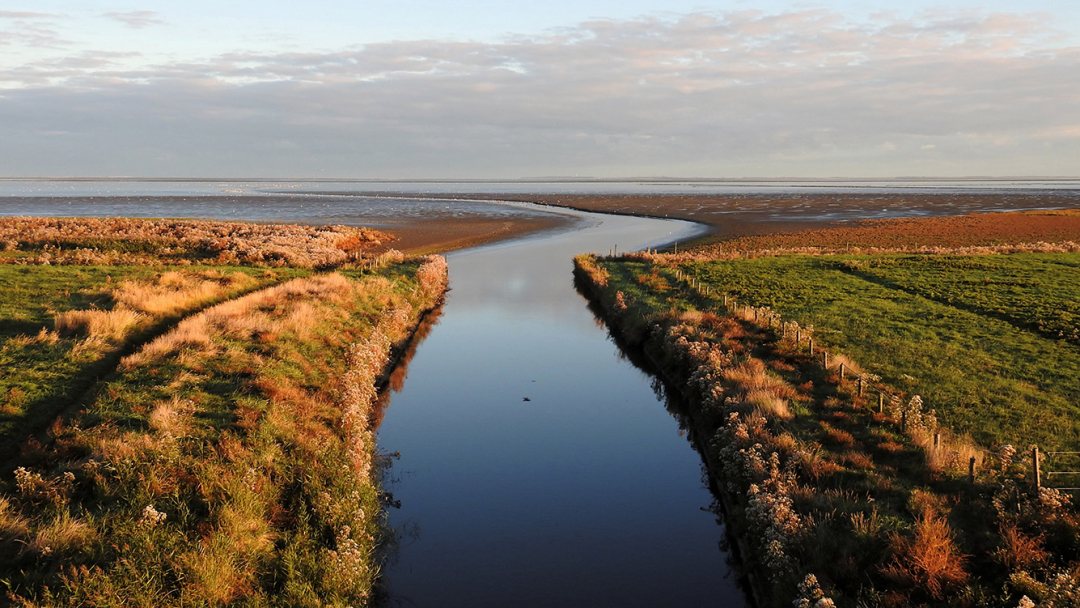

Netherlands joins the Freshwater Challenge
In a major boost to global efforts to mitigate climate change and adapt to its worsening impacts on societies and economies, over 40 countries, including the Netherlands, have signed the Freshwater Challenge, an initiative which aims to ensure 300,000 km of degraded rivers and 350 million hectares of degraded wetlands are committed to restoration by 2030, as well as protect vital freshwater ecosystems.
The Freshwater Challenge is a country-driven initiative with an inclusive, collaborative approach to implementation, where governments and their partners will co-create freshwater solutions with indigenous people, local communities, and other stakeholders, including the private sector. Led by the coalition of countries, the Freshwater Challenge is supported by Conservation International, IUCN, the Secretariat of the Convention on Wetlands, The Nature Conservancy, Wetlands International, OECD, UNEP (under the auspices of the UN Decade on Ecosystem Restoration), and WWF.
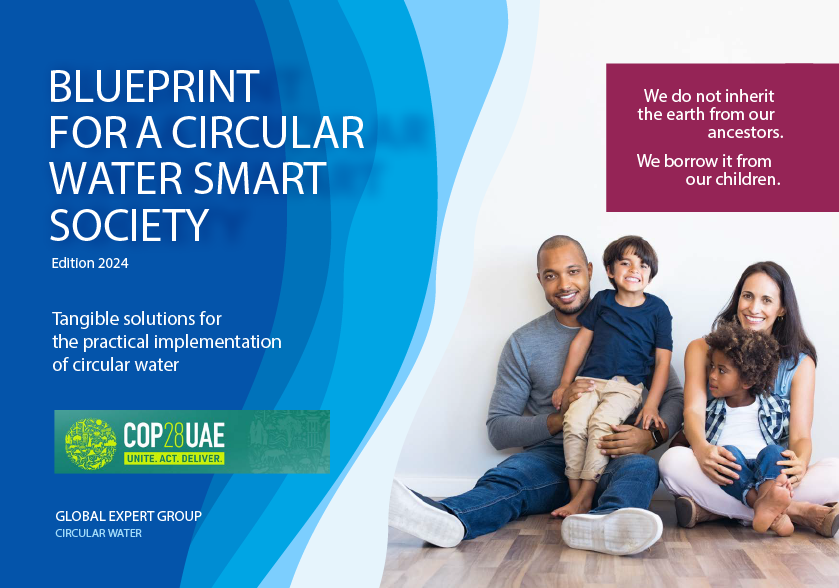

Towards a Circular Water Smart Society
Launched at the UN Water Congress hosted in New York in March 2023, COP28 was the chosen scenario for the official presentation of the ‘Blueprint for a Circular Water Smart Society’. The blueprint provides an overview of the causes of the current water crisis and how the use of safe circular water sources in the urban environment is a quick-to-implement and smart solution to reduce tap water use and wastewater emissions by 25 to 45 percent.
The 'Blueprint for a Circular Water Smart Society' serves as an invaluable starting point for governing bodies worldwide, offering practical and concrete solutions. During its presentation, hosted by Water Alliance and Hidraloop, the vital need for smarted freshwater use to combat climate change’s effect was highlighted. In addition, the importance of integrating circular water technologies in urban environments, creating supportive policies, and driving innovations, from climate tech to nature-based solutions with best practices and gaps identified by global water vision leaders, were emphasized.
Initiated by the Expert Group Circular Water of the Dutch network organisation Water Alliance, the ‘Blueprint for a Circular Water Smart Society’ is the result of an international collaboration called the Global Expert Group Circular Water. Partners of the Blueprint are supported and endorsed by: Water Alliance (NL), Water Europe (BE), Netherlands Water Partnership NWP (NL), The Water Council (US), National Association of Water Innovation (US), Water Foundry (US), Circular Australia (AUS), and World Alliance for Efficient Solutions by Solar Impulse Foundation (CH).
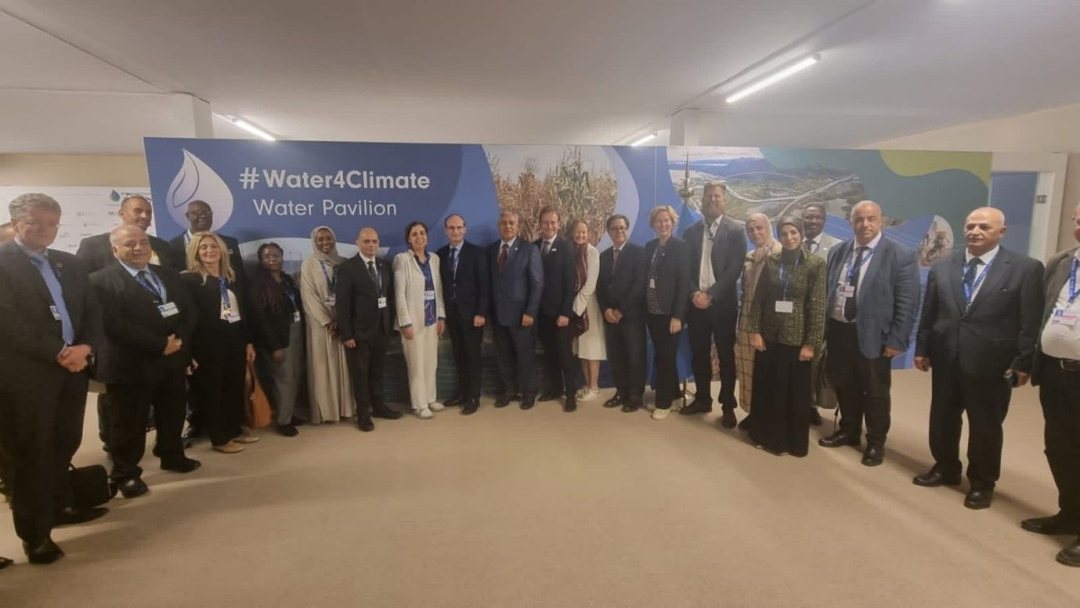

A push for water and food security in the NENA Region
The Food and Agriculture Organization of the United Nations launched the Water Scarcity Initiative (WSI) in the Near East and North Africa (NENA) Region during COP28. The WSI “aims to create a partnership platform to enhance coordination and collaboration among various regional stakeholders in the pursuit of achieving water and food security in the region,” said Abdulhakim Elwaer, Assistant Director-General and Regional Representative for the Near East and North Africa, Food and Agriculture Organization of the United Nations. The Netherlands and the Swedish International Development Cooperation Agency are co-financing the initiative.
Through WSI, partner organisations will work towards water security by focusing on various issues including, but not limited to, water accounting, irrigation efficiency and productivity, governance and cross-sector policy coherence, non-conventional water use, water-energy-food nexus, and data deficiency. Through the Dutch financial contribution, and by making Dutch water expertise available, the Netherlands supports Arab countries in their ambition to make progress towards the United Nations Sustainable Development Goals (SDGs) on poverty reduction (SDG 1), food security ( SDG 2), water and sanitation for all (SDG 6) and climate action (SDG 13).
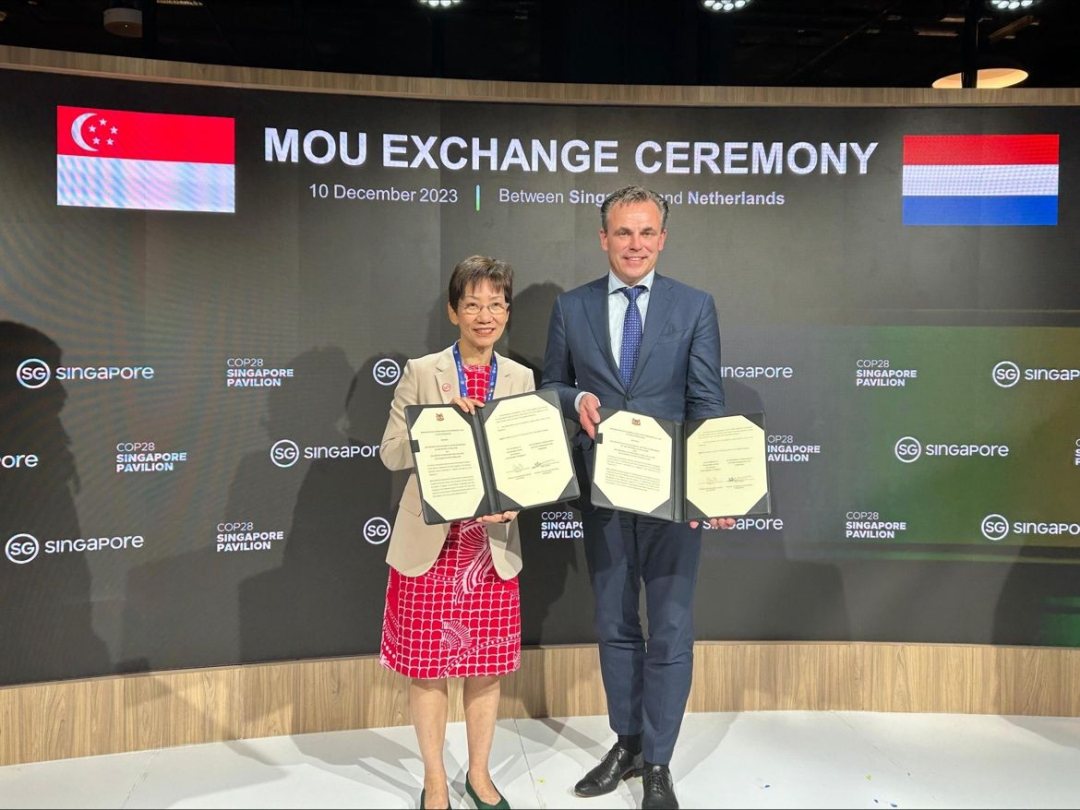

MoU on Water and Climate Adaptation
Singapore and the Netherlands have cooperated in the field of water and climate adaptation over the years. During COP28, outgoing Dutch Minister of Infrastructure and Water Mark Harbers and Singapore Minister of Sustainability and Environment Grace Fu reaffirmed their nations‘ commitments with a renewed MoU on environmental and water cooperation.
The exchange of the MoUs took place during the ‘Climate-resilient future: Transforming Water Challenges into Opportunities’ panel discussion held at the Singapore Pavilion on 10 December. “Today, we are renewing our MoU with the Netherlands, where we will cooperate on a wide range of issues including tackling climate change, and decarbonizing our water resources,” said Minister Fu in her opening statement.
Sustainable saline agriculture
According to the recent estimates of FAO, almost 1.4 billion hectares of soils are currently salt-affected and over one billion hectares are at risk of salinization. Rising salinity is decreasing soil fertility, affecting crop yields, and threatening food security. Increasing levels of salinity is also a problem in the Netherlands. While the traditional approach has been to rely on fresh water flows for drainage and the prevention of saline tidal intrusion, as well as soil rehabilitation, saline agriculture offers an interesting approach and opportunity to practice a new type of farming.
FAO’s WASAG initiative (the Global Framework of Water Scarcity in Agriculture), held a panel discussion at the Food Systems Pavilion to raise awareness on the importance and benefits of saline agriculture, and to provide evidence to support investment and policy development for saline agriculture in the context of climate change. During the session, Dutch Vice Minister for Nature and Nitrogen Policy Donné Slangen explained that the Netherlands has to change its freshwater policy to a much more integrated one that addresses climate, biodiversity and water issues. “If we don’t do anything, two thirds of our country will be salt-affected, and this has an enormous impact on our food production,” said Slangen.
The Netherlands, together with its private sector and research institutions, is working together with FAO and the Asian Development Bank to scale up knowledge and know-how on saline agriculture. After the panel discussion, a video promoting sustainable saline agriculture and featuring this international collaboration was launched.
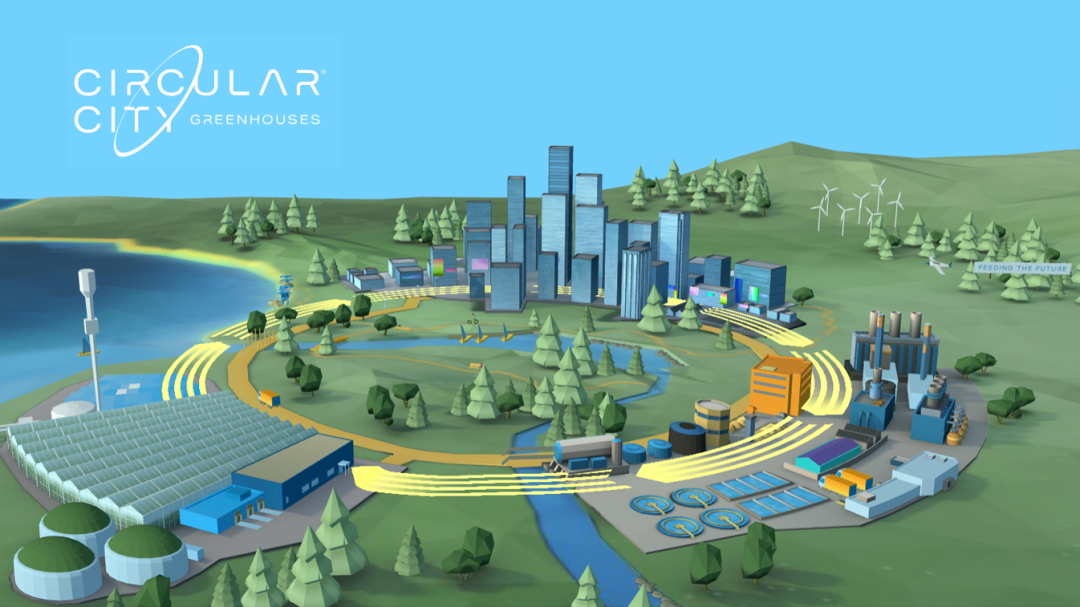

Circularity in Greenhouses
Food systems are heavily affected by a changing climate due to draughts, floods and increasingly extreme weather patterns. In the transition towards circular food systems and a more sustainable world, Dutch organisation Van der Hoeven Horticultural Projects launched Circular City Greenhouses at COP28 – a sustainable horticulture solution for feeding the future. Sustainable fruit and vegetable production in high-tech greenhouses that operate on urban and upgraded waste streams.
Circular City Greenhouses is the essential link that can help regions go from linear to circular economies, while addressing the rising demand for sustainably grown food in a rapidly urbanising world. It is a concrete example of what is possible when the water, food, energy and waste sector come together. Circular Development Manager Jessie-Lynn van Egmond: “When it comes to creating circular economies and integrating different sectors, technology is not the limiting factor, awareness and collaboration is”. With a focus on urban waste streams, Circular City Greenhouses by Van der Hoeven contribute to the transition of our food systems and creating a new purpose for resources that would otherwise be lost or emitted.
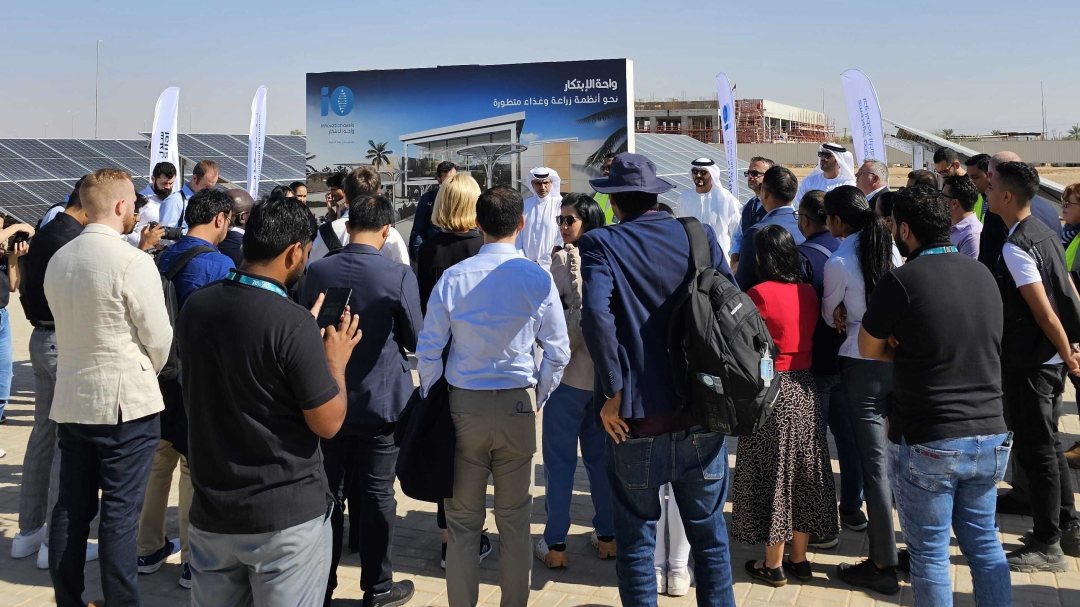

Sustainable farming
Silal, UAE's leading food and agricultural technology company, and its Dutch partner Desolenator organised visits to their project site in Al Ain to showcase the world's first fully solar thermal desalination plant in the agriculture sector and integrated net-zero greenhouse system. Desolenator taps into abundant sea/brackish water and sun to produce high quality water for closed loop greenhouses. Together, they grow strawberries and tomatoes in the desert, 100% sustainably.
The competition of the project marks a pivotal moment in addressing energy, food and water security challenges through low carbon desalinated water, tailored remineralisation, and integrated greenhouse cooling. This initiative paves the way for scale, offering a turnkey solution for farmers across arid regions.
Visitors were also able to access the app that their technology partner Hexagon has developed. It features a live data dashboard, monitoring the performance and impact of the plant in real time. “By combining reality capture solutions and asset performance management software, our collaborative project with Desolenator will yield ground-breaking results for clean water access across the globe,” said Erik Josefsson, CEO of R-evolution, the sustainable innovation and green-tech investment subsidiary of Hexagon AB.
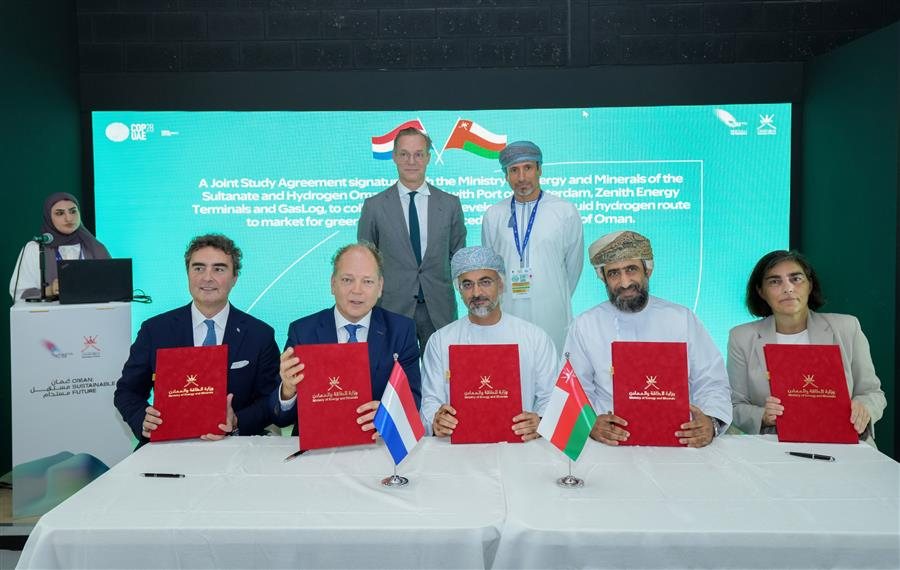

Liquid hydrogen corridor
The Sultanate of Oman's Ministry of Energy and Minerals and Hydrogen Oman (Hydrom) have signed a Joint Study Agreement (JSA) with Port of Amsterdam, Zenith Energy Terminals and GasLog, to collaborate on the development of a liquid hydrogen route to market for green hydrogen produced in the Sultanate of Oman. The Agreement underscores the clear ambitions of the partners to make the world's first commercial scale liquid hydrogen corridor a reality. The Agreement was signed at the Omani Pavilion during COP28, with His Excellency the Minister Eng. Salim bin Nasser Al Aufi and the Climate Envoy of the Kingdom of the Netherlands, Prince Jaime de Bourbon de Parme, as official witnesses of the ceremony.
The Agreement entails conducting a detailed assessment of the requirements to develop an open-access hydrogen liquefaction, storage and export facility in the Sultanate of Oman, along with the provision of specialised vessels for the transportation of the liquid hydrogen, currently under development by GasLog. The primary aim of the Agreement is to establish a green hydrogen corridor between the Sultanate of Oman and the Netherlands, with the terminal of Zenith Energy as the destination for the import, regasification and further distribution of Oman-produced hydrogen to both local off takers within the port of Amsterdam, as well as large industries in the European hinterland. The open-access liquefaction facility will also enable the government of the Sultanate of Oman to explore cost effective hydrogen export corridors to other global markets.
Dorine Bosman, Chief Investment Officer at Port of Amsterdam, said: “Both Oman and the Netherlands are clearly in the vanguard in the development of the global hydrogen market. The complementarity between both nations offers a strong foundation for a fruitful collaboration, as evidenced by the MoU signed by both governments during COP27. We are proud that Port of Amsterdam, together with Zenith Energy Terminals and GasLog, can now, at this year’s edition of COP, take next steps towards the realisation of a liquid hydrogen corridor between the Sultanate and our port. […] We look forward to establishing the port of Amsterdam as the gateway for Omani-produced green hydrogen to the European market.”
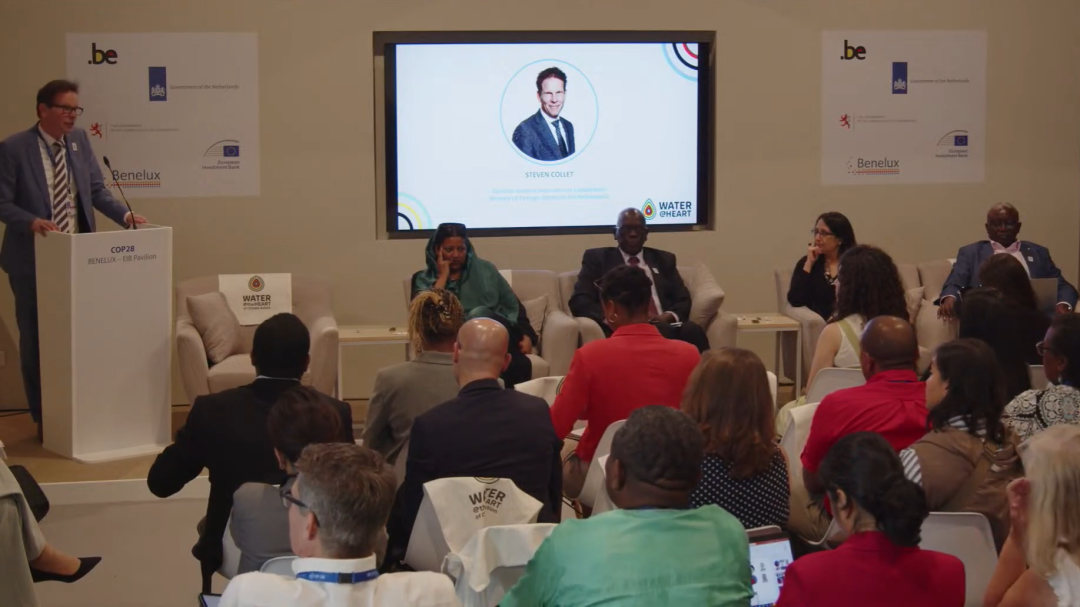

Supporting disaster resilience
The Netherlands will support the ‘Water at the Heart of Climate Action’ initiative with EUR 55 million. The announcement was made by Steven Collet, Deputy Director-General International Cooperation of the Dutch Ministry of Foreign Affairs of the Netherlands, at the BeNeLux / European Investment Bank Pavilion. “Our initial commitment of 55 million euros is intended to lay out the structure and collaboration needed to place water at the heart and to initiate the action.”
This initiative, launched by the Netherlands at the UN Water Conference, aims at mitigating the impacts of water related risks and disasters in Ethiopia, Sudan, South Sudan and Uganda, where more than 51.5 million people are expected to suffer high food insecurity due to climate extremes and conflict. It focuses on practical, locally-driven actions to better anticipate disasters and prepare communities well in advance. In addition, it directly contributes to the implementation of the UN Secretary-General’s 'Early Warnings for All' initiative unveiled at COP27.
This initiative is a partnership between the International Federation of Red Cross and Red Crescent Societies (IFRC), The Netherlands Red Cross, the Red Cross Red Crescent Climate Centre, the United Nations Office for Disaster Risk Reduction (UNDRR), the World Meteorological Organization (WMO), and the Systematic Observations Financing Facility (SOFF).




